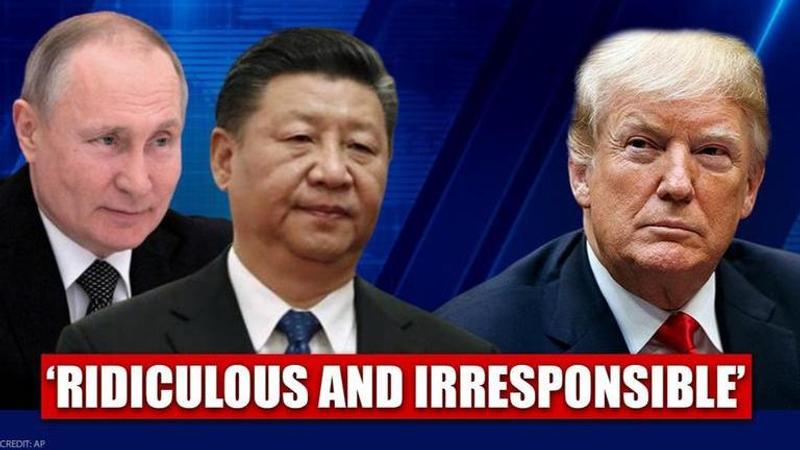Published 11:01 IST, June 10th 2020
Russia, China make case at UN Security Council against US sanctions threat on Iran
Russia and China have started making the case at the UN to prevent the United States from triggering snapback on Iran if it fails to extend the arms embargo.

Russia and China have started making the case at the UN Security Council to prevent the United States from triggering snapback on Iran if it fails to extend the arms embargo which is due to expire in October. In order to get the Security Council resolution on arms embargo adopted, the US would need nine votes in favour and no vetoes from permanent members including Russia and China.
However, Russia and China have already indicated that they are not in favour of extending the embargo, which means the resolution will get vetoed. US special envoy for Iran, Brian Hook, wrote in the Wall Street Journal that Washington will ensure the extension of the arms embargo “one way or other”, threatening to trigger all UN sanctions.
The United States, Russia, China, Germany, Britain and France entered a deal in 2015 agreeing to provide sanctions relief to Iran in lieu of preventing it from developing nuclear weapons. Later in 2018, US President Donald Trump announced Washington’s withdrawal from the deal, known as Joint Comprehensive Plan of Action (JCPOA), calling it “the worst deal ever”.
The Iran nuclear deal was enshrined in a UN Security Council resolution will still names the United States as a participant and the Trump administration is arguing on the technicality that Washington could still trigger a snapback. Russian Foreign Minister Sergio Lavrov and his Chinese counterpart Wang Yi have written to the Security Council and UN Secretary-General Antonio Guterres arguing that Washington has no locus standi for triggering the snapback.
'No right to demand snapback'
Wang wrote to the council saying the US is no longer a participant to the JCPOA after walking away from it and has no right to demand the Security Council invoke a snapback. In a letter to the 15-member council, Lavrov said that the US was being “ridiculous and irresponsible” and cited a 1971 International Court of Justice opinion to make the case for Iran.
ICJ observed that a fundamental principle governing international relations was that “a party which disowns or does not fulfil its own obligations cannot be recognized as retaining the rights which it claims to derive from the relationship”.
Updated 11:01 IST, June 10th 2020




